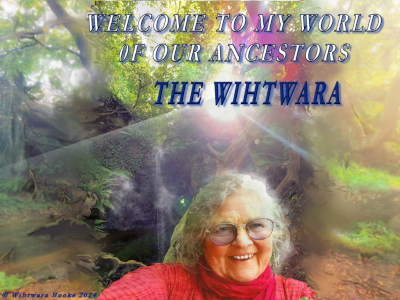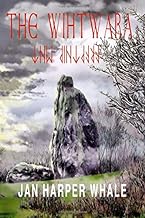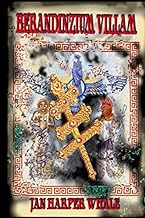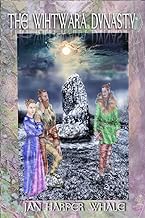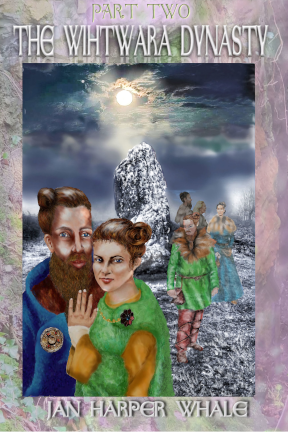THE 1st WIHTWARA CHRONICLE
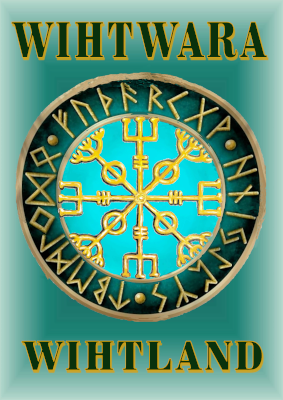
Not a single word from his-story has been sent down to us about the Wihtwara. That is because they were massacred by fundamentalist Christian warriors, for refusing to become Christians and worship this One-god.
And why should they? The Wihtwara were a totally peaceful race of Suevii migrants to the Isle of Wight. They farmed the land, were given guardianship by their Goddess Nerthus and worshipped Her fully along with their gods, Wōden and Thūnor, Freya and Mōnā.
So much more has been written by Scandinavian monks with pens about the Vikings legends.
So, I'm putting some records straight, based on archaeological facts. Wōtan was a very ancient god of the Suevii (Germania). He came before the Scandinavian gods. And was worshipped over all the Suevii lands. And those people stayed loyal.
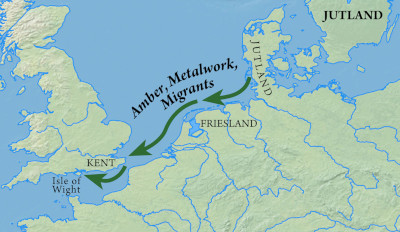
As early as the late Neolithic era, there is now DNA evidence that the migrations from the Cimbric peninsula, (named after the tribe that lived at its point), including the confederacy of seven tribes who worshipped the Earth Mother, settled along south coast, Isle of Wight and up the eastern coast of Britain.
Steven Oppenheimer writes in his seminal book, The Origins of the British, (Were the Saxons here before the Romans left. pg 382.)
"In the last three chapters I have discussed genetic, linguistic, literary, and archaeological evidence for a foreign, probably German-speaking presence in Britain from before the fifth century C.E., and even before the Roman invasion. The genetic evidence points towards north-west European influence on the east and south coasts of Britain, going back to the Neolithic, and a Scandinavian influence, affecting the north-east of Britain in particular. I have cited evidence for a deeper division between the first Old English dialects with a stronger Norse influence in the north. I have suggested that the colonization of Anglian and Saxon parts of England had complex but different timescales and arose from several continental sources at different times."
He also writes in the 'Origins of the British' (Were the Saxons in England before the Romans left'. pg 358.)
"Bede's text reports that in Roman Britain of the third century there was Germanic ascendancy as well as 'chronic Germanic infestation' in southern England."
... ... ... ... ... .... .... ...
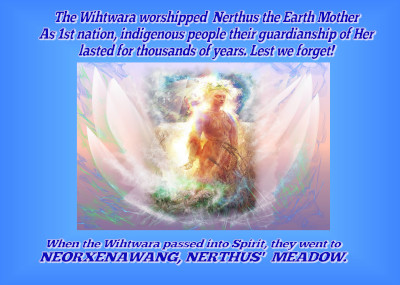
So, we begin these chronicles at the very beginning. Dagrun Wahl, a young
Wīscwēn respecting her grandmother's passing,
is sent to the fore time, to witness Wōtan emerging, growing and becoming Wōden. This is at a time before the
Romans. Wōtan merges with Nerthus. He learns shape-shifting and becomes a serpent. Dagrun witnesses the transformation. She
learns through becoming a 'watcher' the depth of ancient wisdom gifted by the Anses to Wōtan, becoming Wōden the
demi-god.
And it is in England, Britain, that most evidence lies to his worship here over many centuries. We need to parr the huge onion
layers created by the Church to cover up the massive sub-summation of Wōden and Nerthus here in Britain now. It was
a cover-up of every piece of paganism the monks and clergy could find and bury them completely.
From Stephen Oppenheimer: The Origins of the British. 387
"We still honour Wōden's name in the variants of the word-stem 'Wednes-' in English place names and one of the days of our week. So, we read in book 1 of the Anglo-Saxon Chronicle :From this Wōden arose all our royal kindred'. This text, from one of the oldest surviving English histories, was no routine description of an accident of descent but a deliberate statement. The gap between each of the main English founders and Wōden was but a few generations. For instance, The Jutish (Wihtwara) leader Wihtgils,. Whose name is attached to the Isle of Wight, was claimed to be Wōden's great-grandson through Wecta and then Witta. Wihtgils is also claimed as the father of the fifth-century and earliest semi-legendary leaders Hengist and Horsa, which would make him already resident in the British Isles when they 'invaded'.
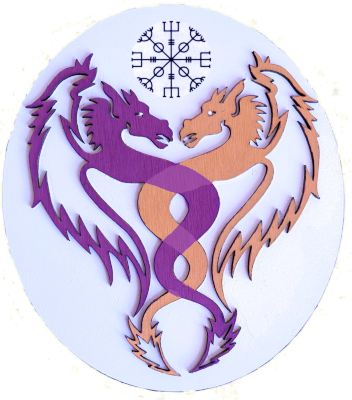
and becomes a serpent.
But did they?
Archaeological DNA profiling proves no invasion ever took place.
Visit www.the-wihtwara.co.uk for further evidence under the title Professor Alice Roberts
documentary.
And there is more evidence to underpin all these statements above.
The Forefather of Wihtgils is known to have fought up in the northern borders. His capstone is there written in Latin. What is glossed over, the fact that the Roman language does not recognise W. Vitta becomes Witta as does Vecta becomes Wecta...... And a simple linguistic anomaly hides the obvious. That Vecta should be named Wecta. The true name of the Isle of Wight and named as the true descendant to Wōden.
The lost but always honoured, 'Wōden's golden-eye sanctuary
The Christian 'overthought' labelled this Nerthus cave, the devil's chimney because the face of Wōden was immortalized in the rock face, complete with his spirit eye, his 'golden-eye' shone out to everyone who visited. It became immortalized in the Wihtwara Dynasty narrative. It had become such a tourist attraction, it ranked high in Trustpilot.
Then, in a catastrophic land-slip, due to climate change, the whole of the rock face fell away, disappearing below amongst piles of rock and fallen trees.
This, just a week after the final book was published, the Wihtwara dynasty part 2. We have not just got a permanent record of rituals that were performed there by our Ancestors, but images of Wōden recorded forever.
Bletsunga beohte
J&M xxx
